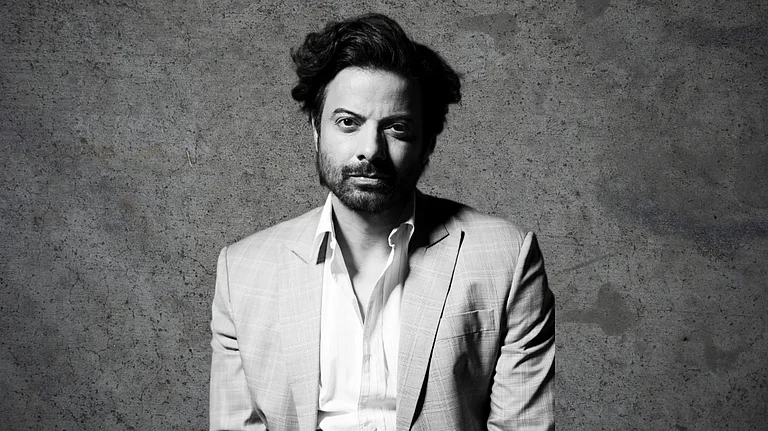Two crucial dates related to BR Ambedkar, the leader who launched a major assault on Hinduism, are ironically linked with the events that stand high in the Hindutva movement. One is well known. Ambedkar died on December 6 1956, the day that saw the demolition of the Babri mosque 46 years later in 1992. While various Hindu organizations celebrate the day as Shaurya Diwas, for Dalits it is Mahaparinirvan Din. Dalits gather in large numbers at Chaitya Bhoomi in Mumbai, the place Ambedkar was cremated.
The other irony is lesser known. It’s on Vijayadashmi, the day Nagpur sees two major gatherings every year. The country remains mostly fixed on one, when Rashtriya Swayamsevak Sangh’s chief delivers his annual address, the most important event in the RSS’s annual calendar. But it’s also the day when Ambedkar had left Hinduism in 1956 and embraced Buddhism. On the day scores of RSS swayamsevaks assemble at the RSS headquarters in Nagpur, thousands of Dalits from across the country gather at Diksha Bhumi, the place Ambedkar had embraced Buddhism.
Significantly, Ambedkar chose Vijayadashami not because of the legend associated with the Ramayana, but because king Ashoka had embraced Buddhism on the day, which, since then, is called Ashoka Vijaydashmi or Dhamma Chakra Parivartan Diwas.
In the twin spectacle every year at Nagpur, while the RSS occupies the first half, as the city turns dark one finds a huge congregation of Dalits marching, singing songs. Most of them come from distant cities, carrying their own food. In 2016, this correspondent covered both the events. It was the 60th anniversary of Ambedkar's embrace of Buddhism but the Dalits, despite outnumbering the other event, had largely gone unnoticed.
“It's Ashoka Vijayadashami. On this day King Ashoka gave up weapons as he was disillusioned after the Kalinga victory,” Dalit activist Prashant Ramteke told this correspondent.
Earlier in the day, RSS Sarsanghchalak Mohan Bhagwat delivered his Vijayadashmi address and praised the government for enhancing India's glory by conducting surgical strikes. However, several Dalits had little idea about the Army's operations. They held rallies, raised slogans and staged plays about the discrimination they faced in daily lives. “Vijayadashmi is not a celebration of valour, but of giving up arms,” said Ramteke, pointing how the Dalit event has offered a counter narrative to Sangh's Vijayadashmi.
By midnight, Diksha Bhoomi sees a crowd with a rare trait. It’s a political gathering with hoardings of Dalit parties and leaders such as the BSP, the RPI (A), Bhim Sena, Bhim Dal, Mayawati and Ramdas Athawale. But eminent Dalit leaders are rarely present to lead or steer the crowd. It’s a people’s march that doesn’t require any leadership. People throng to the town without any directive of any party or leader.
One can meet young men like Maske Kishor, a resident of Adilabad in Telangana. “I come here every year. I don't know why. Maybe I can get some peace,” he said.
People begin assembling here a few days before, sleep on the memorial ground or nearby footpaths and get free food at stalls organized by the city’s Dalits. Even past midnight one can find people in a queue at a stall that is distributing plain rice on a leaf.
Most of these are lowly-paid and involved in smaller professions. You can also find people who are part of Dalit bands and sing songs of Ambedkar and Jyotiba Phule at various events.
These Dalits dismiss the notion of a Hindu Rashtra. “Why do they want to include us in Hindus? Baba Saheb left Hinduism. Our caste certificate mentions Buddhism as our religion,” says Prashant Ramteke.
Ambedkar constantly questioned Hinduism and the idea of a homogenous Hindu. Arguing that “Hindu society as such does not exist”, he wrote: “It is only a collection of castes. Each caste is conscious of its existence... A caste has no feeling that it is affiliated to other castes except when there is a Hindu-Muslim riot.”
Ambedkar acutely realized the unifying power of the Hindu sentiment before Muslims. In the last few decades a large number of his Dalits have switched sides and joined the BJP-RSS ranks, be it in Gujarat or Uttar Pradesh. But even Ambedkar could not have anticipated that a large number of Hindus across castes would lead a mob, mostly comprising his fellow Dalits or lower OBCs, and bring a mosque down on his death anniversary.


























